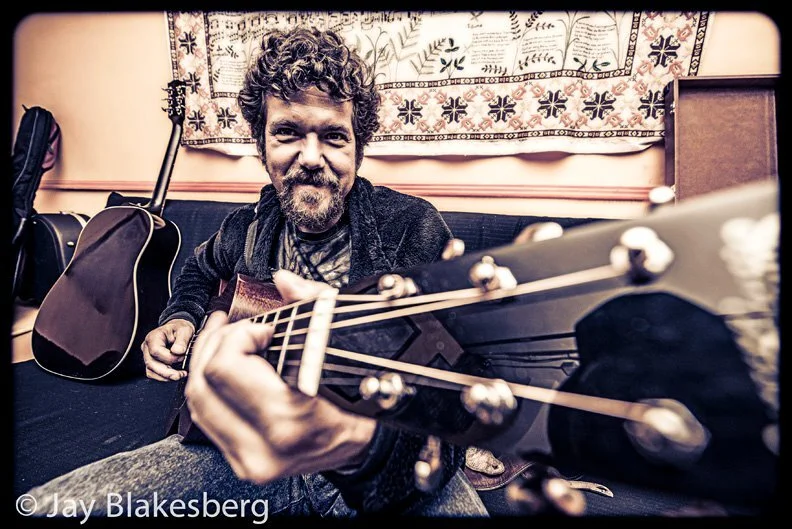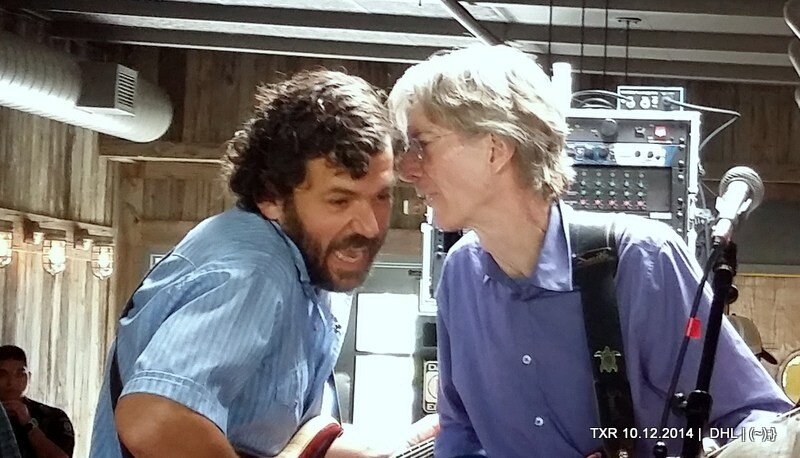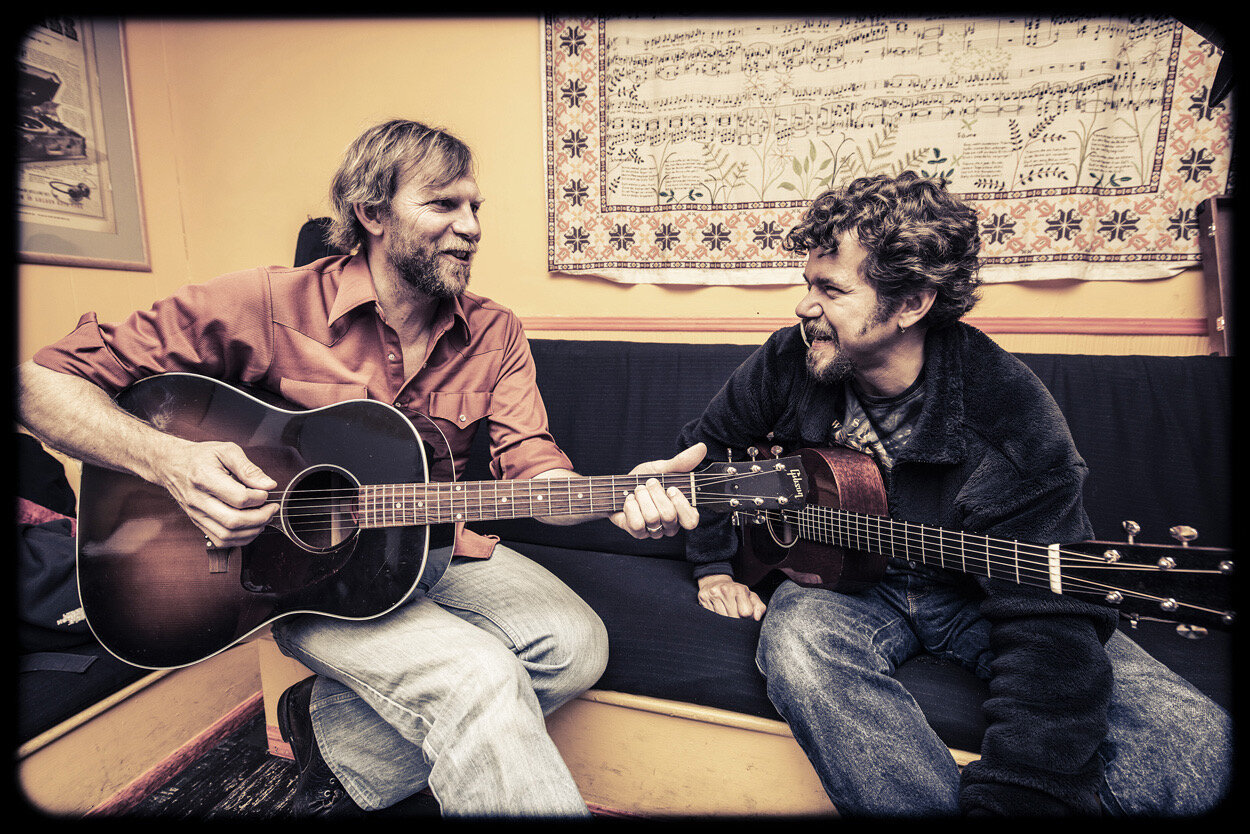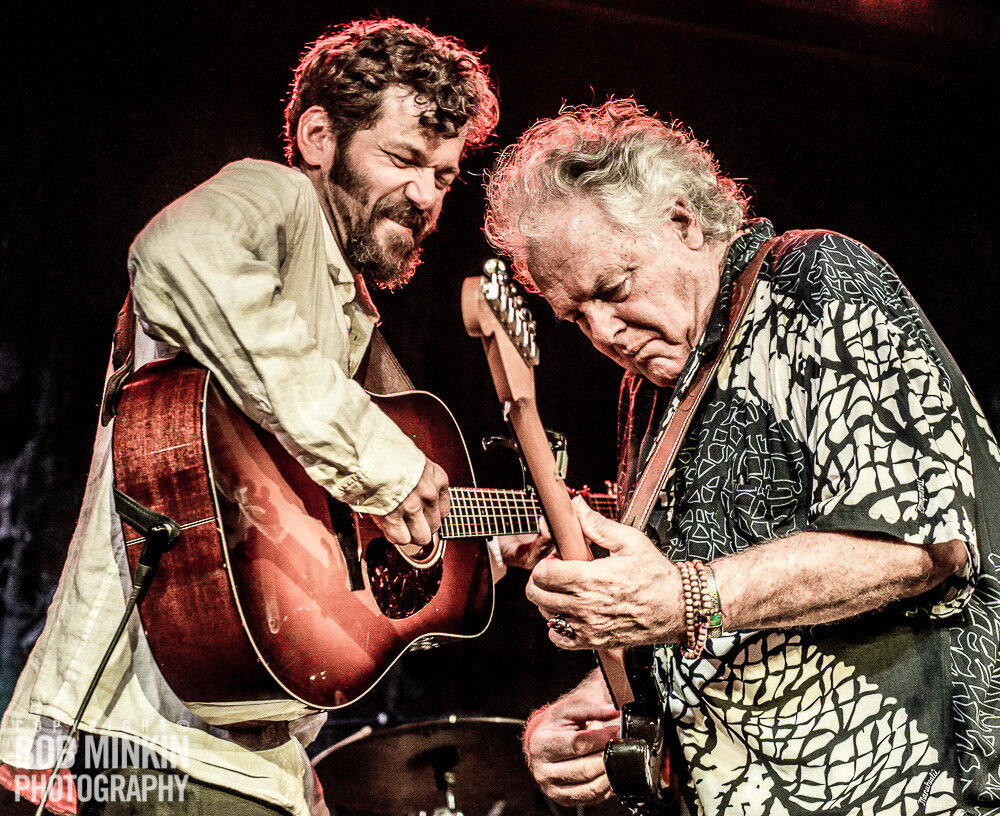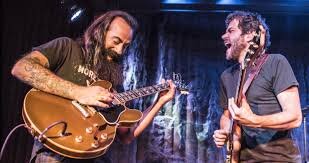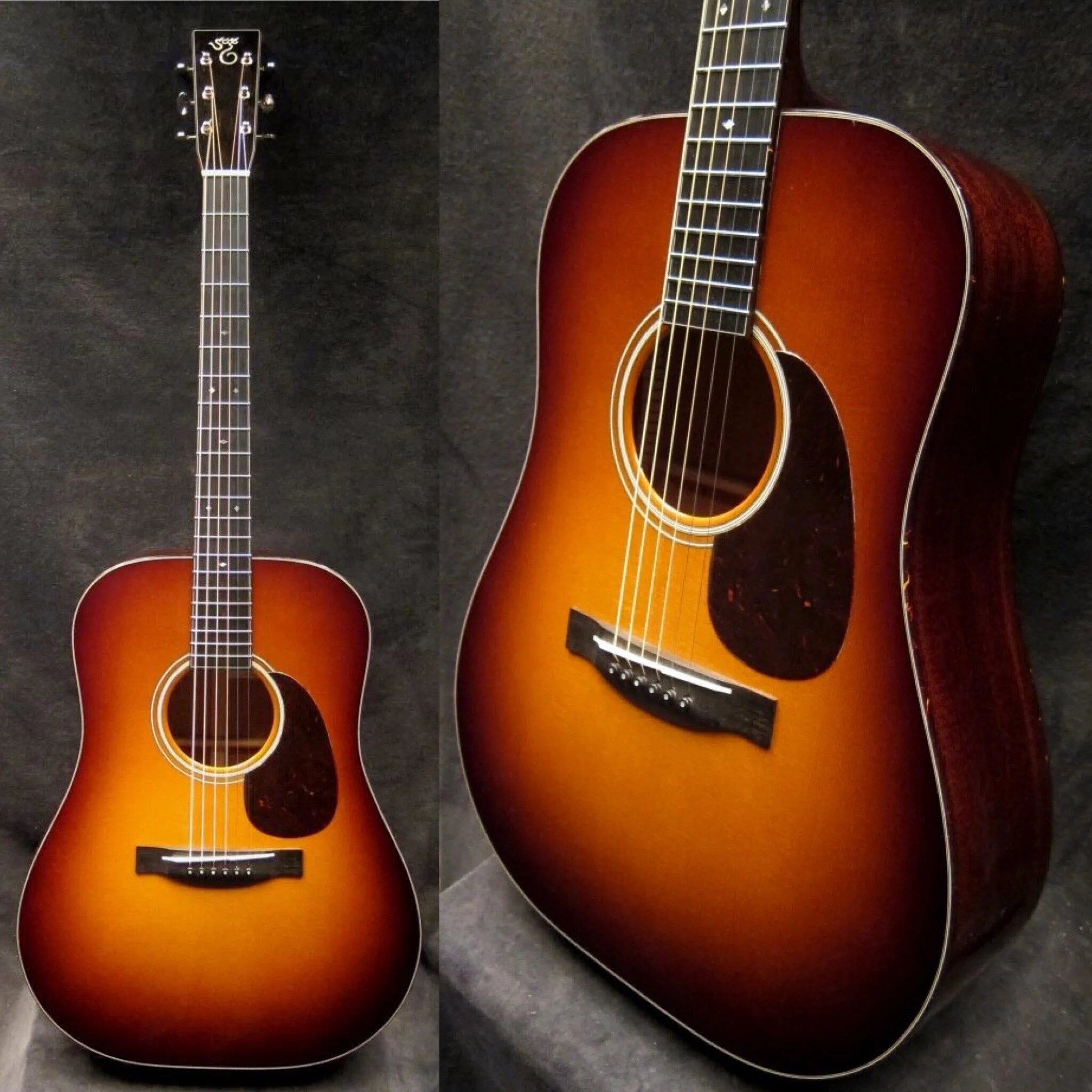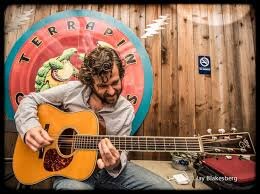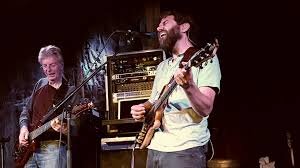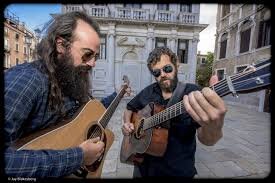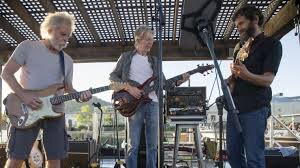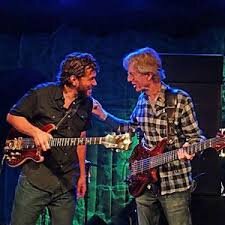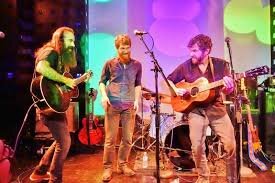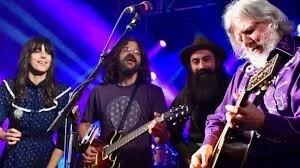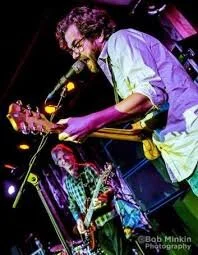Your Lore Chapter 11: Scott Law
Reid: I remember reading an interview with Jerry Garcia, I think it was Dennis McNalley's Jerry on Jerry where he says something like "at that point, I was an artist and to give myself to it 100%." It strikes me you've done the same with your music - you are it. Was there a divine moment when you were like this is it?
Scott: That quote is like a beacon ringing in my head from early on, though intervening years have seen junctures that required epic reminders of it to stay on track. As far as a particular moment... there have been a few, but the first significant one was actually sometime in the fall of junior year, downhill side of high school. I had reached a level of involvement with both music and baseball where the commitment forced a choice. I stuck with the music.
Going that path helped galvanize my personal discipline, accountability (practicing) and goals (grades) and helped me focus on getting into college for more study which resulted in complete, if not hard won buy-in from my parents. From then on they unequivocally supported my music/art pursuit! Of course that meant they started showing up to gigs all the time - ha! But if not for them rooting me on, I don't know what??? My mother was a total possibility thinker. She passed that along to me to great advantage. Somehow here I am, still playing guitar for a living.
Reid: Right or wrong when I think of "Scott Law," the first thing I think of is wow that's a cool last name. The Law. Then I think of you playing guitar. In fact your a singer, songwriter, mandolin player and of course a monster guitar player. When you picture your musical self is there something in that mix thatn defines you or at least a place where you start?
Scott: That's Dr. Law to you, Reid!
Dr Law the “Practitioner” with Phil Lesh, Tim Bluhm, Peter Rowan, James Ross
Hmmm... the question about musical self points to the thing I most wanted to master when I started. Something like, "Listen close and constant, learn to play accurately the ideas you hear internally in relationship with the music happening around you." I was, and still am looking for freedom to fly on my instrument, striving to play like that. Long ways off from perfection, but gettin closer than it's ever been!
As a kid, I was first curious of the mandolin sound through- get this - Led Zeppelin and Rod Stewart on the radio! When I fell in love with it was hearing David Grisman's Quintet and Old & In The Way albums, when I was maybe 14-15 years old? Wouldn't be until '96 when I'd finally get a mando of my own, but ever since I keep practicing on it. It's my alternative muse where hearing possible melodies in the higher register brings out something different, and the process of re-fingering and conjugating mando-speak on guitar is super illuminating.
I had ten years of electric guitar behind me before I ever seriously went down the acoustic rabbit hole, on either instrument. I essentially put the electric down for several years and went deep into alternating universes of acoustic jazz and bluegrass. Picked up a ton of practical knowledge and gig experience that fed the whole music grid in my brain and fingers.
In truth, probably what I do most naturally and comfortably is play the electric guitar. There, I said it.
Reid: Also what do you think of my last name?
Scott: I love your last name, Reid. G-E-N-A-U-E-R ! So easy to spell!
Reid: The Mandolin is sort of a mystical instrument to me. I know it’s usually only got 4 strings and strung like a violin. Did you move from guitar to Mandolin? What are some of the nuances of playing Mandolin vs Guitar? Is it hard to switch your brain to think in Mandolin?
Scott: Four strings and strung like a fiddle! I picked up mandolin later after guitar and it's definitely a flip. A good deal depends on context but mostly to me, mandolin touch is quite different and requires constant vigilance of technique. Turns out the lighter you play it, the better, to a point at least. Everything is closer together and the strings are more taut so the variances are slight, and anything wonky just compounds horribly fast so it's a bear to pull tone out of 'em. That's my goal. TONE. I'll settle for fewer notes if the tone is there! Monroe. Dawg. Reischman.
Comparing the two, the fingerboard map is the same as the bottom four strings of a guitar upside-down. Helpful? Not really. I had to learn to view the mandolin in and of itself. Funny thing is, the hand shapes can be very familiar but yield totally different sound than guitar! Helpful? No. Confusing. So yeah, it's its own thing and I just keep poking along and can hang, but man it speaks in a voice that I love to hear and the repetitive logic of the fretboard becomes refreshing when switching over from guitar.
Reid: I know you have a few custom instruments? What are they and what motivated you to have custom instruments built?
Scott: I have a keen appreciation of vintage guitars, but there's been a few successful custom order instruments over the years. Sometimes you find what you're looking for is already there, and sometimes you gotta cook something up... and if the guitar matches the moment, right? I kinda feel weird talking about it, or material possessions but grateful for my good fortune to play them - so here it goes...
There is a custom Alembic "Further" solid body that was completed in 2005, only two months after getting the opportunity to play its granddad, Garcia's "Wolf" at Red Rocks the first time I met Phil Lesh! So that happened in July and then that October my new guitar shows up. As I noted and have corroborated since with subsequent Wolf visits, the two guitars are definitely of the same zeitgeist. "Owl" (named after the inlay behind the headstock) is to me, completely sublime and the hands down go-to for finding tones in the Grateful Dead-O-Sphere or just about anywhere else for that matter. Additionally, it's uncanny when needing to laser through the din of a thick mix onstage... and I could go on with praise and admiration about the work that Alembic did here.
Scott Law
Signature Guitar
Flip the coin and the main acoustic guitar is an instrument that was a dream project with Richard Hoover, founder of Santa Cruz Guitar Company. He's a legend and been building 'em since 1976. I tried to describe what I wanted through a whole smattering of disconnected adjectives and heady concepts, yet dang if he didn't just zero right in and build exactly what I thought I meant? I mean, exactly what I was imagining and describing, all the adjectives!
Fast forward a few years when I brought it back for a maintenance visit and the shop folks were kinda blown away at how huge the sound had opened up to be? Next thing you know, they wanted to offer it as a signature model in their line, so you can actually buy one if you're into it? The "D-Law" dreadnought sized guitar, made of sustainably harvested mahogany, Italian spruce, ebony and bone, features punchy volume, clear lows and thick highs. You can play anything on it but it's a flatpicker's dream.
Reid: You've been a fixture at Phil Lesh's Terrapin Crossroads for some time now, a few years yes?
Scott: February, 2020 marks six years. That's 72 consecutive months!!!
Reid: The way I've described the scene at Terrapin is two-fold. One is that The Grateful Dead is a psychological and musical ideal - a headspace that many of us subscribe to in full or in part. Terrapin Crossroads, however, is a physical place that one can go to touch a little slice of that special Grateful Dead "thing". Do you agree?
Scott: I would agree. Terrapin Crossroads is its own category. There is nothing, or no venue in existence that I know of which quite compares to TXR for a lot of reasons, yet especially for being uniquely grounded in Dead culture and all the unspoken synergy there.
Then there's the music, extended roster of regular players and Phil's indelible influence. Like a multigenerational community music scene around a central flame of that good ol' Grateful Dead spirit of kindness, mirth and spontaneity that binds the band and audience together. Hard to describe, just like the band. You have to be there.
Reid: The second point is equally profound. There is an extended community of musicians who have coalesced in and around TXR, who perform there and beyond. It feels like a swarm of like-minded musical souls who have TXR as a candle to help call them together. Hell even though you and I have known each other for ever, Terrapin was a recent touch point. What’s your take on the community within the walls at Terrapin and beyond?
Scott: I have too much to say about this... Never seen anything like it. For the last six years I have played music to a point feeling like I've toured in bands with something like 35-40 different people. Not the touring part, but the connection! The level of comfort with the unknown onstage that this allows for is beyond notable. Also, that simple fact means there is a matrix of us out there who are now quite at ease with playing not just GD repertoire, but together in any combo and improvising as a group, in the style that Phil has directly nurtured through example and all the stage hours together. Feels as if this whole thing is more like 'genre' development around the repertoire of some funky west coast '60's band that everyone loves to play and dance to? I guess that's just the jam. Keeping the freedom feeling in it is definitely part of it.
Reid: I imagine you've gotten to know Phil well musically. You guys play together a ton. I've only played with him a handful of times, but in those moments I toggled between being in the music thinking "wow this is a cool pocket or whatever" to popping out and being like "holy shit" that's Phil "Facking" Lesh. I'm guessing you still have those holy shit moments but you look awfully comfortable up there?
Scott: Every time!!! That's Phil-Fucking-Lesh!!! Swear to my grave I can't even fathom but yet, ever the fan and because of that it’s the biggest thrill to hear that huge bass coming in from the back of stage. I do get nerves occasionally but they're gone by the first tune. All the superlatives, history and understatements aside, Phil has perfect pitch, knows where all the notes are on his instrument and has a concept that's always reaching further out and around the musical corner... places most of us don't see 'til we're right up on 'em and then BOOM!!!!
Reid: More to the point, the Grateful Dead songbook is being played every night of the week somewhere by someone but NOT every night with Phil Lesh at the helm. Even Trey seemed intimidated or at least very self-aware at the Dead 50th. What's your approach to respecting the history of The Dead in one hand and reimagining it in the other?
Scott: It took me two years of solid work to get a certain level of real comfort over the bulk of the Dead's repertoire, despite a lifetime of familiarity hearing it. Mostly working to master the critical structural aspects of the songs and arrangements, which with this material is more complex than you might figure from first glance? So that's a commitment there. Next I look at particular cool parts (of either first or second guitar) that I deem most fun to carry on with and fill in the rest with my own ideas that fit with what's actually happening. To me, the thing is to capture the feeling that lives in the phrasing and works in the moment.
Reid: As an aside, I kinda feel like I have always known you. I can't remember exactly when we met. I know we did the Honkytonk Homeslice and Assembly of Dust tour dates in 2007, but I feel like we met before that - forgive me, do you recall?
Scott: Possibly prior, but I think that AOD/Homeslice run was our bonding tour? Unless it was Jam Cruise? That was some fun we had in those halcyon Honkytonk days and I came to know you have some great songs, my friend!
Reid: When I googled you the first videos that came up are you playing and singing bluegrass music from your album Black Mountain on Acoustic guitar. You sound killer as an aside. When I imagine what I "could have or should have been" musically, I often think man maybe I should have been more of a Neil Young or James Taylor kinda guy. With the caveat that you do in fact have many musical faces, is there one that feels like the truest or at least the blue sky adult you?
Scott: I am still becoming whatever this musical life art is to become. Part of it is acoustic, part electric. Part of it is recorded, most of it transient in the form of undocumented jams in clubs and basements. I spent six years deep in the fiddle scene with pioneering virtuoso, Darol Anger which left a deep bluegrass mark on the whole trip. That acoustic side is a significant part of my story. One of these days I wouldn't be surprised if I settled back into spearheading a rocking electric guitar band with lots of harmony vocals and funkiness? Reckoning to keep rolling along, doing all I can that suits me, keep things inspired and keeps my head above water.
Reid: Are there 2 or 3 of the songs you've written or albums you've played on that you're most proud of? Why?
Scott: I was in a group called 'Hanuman' that made an album in 2000 that I have fondness for, called "Pedalhorse." I also self-produced "Black Mountain," basically a bluegrass instrumentation arrangement of mostly original stuff and that one has held up for me. Doesn't mean I haven't changed a lyric or two, but it's a damned solid record. I am starting in on a new batch of songs to record this year so maybe check back?
Reid: What are a half a dozen musical influences or at least guilty pleasures that your fans would be surprised you love?
Scott: When we call out influences, we tend to call out what we like. Whether I like it or not, I heard a lot of crazy shit on the radio growing up. I listened CONSTANTLY and I'm pretty sure some rubbed off through osmosis. I can't shake my soft spot for many top 40 hits of the 70's and if you woke up to Styx and REO Speedwagon every day of high school alarm clock??? Yikes.
Reid: In regards to those Holy Shit moments I've mentioned above - as musicians, really as people we all have a handful. For me one was playing the gymnasium at UVM where I went to college. Are there one or two golden god moments that stick out for you as a musician?
Scott: The first time playing the Capitol Theatre in Port Chester, NY with Phil & Friends really sticks in my mind first and foremost. The history of that hall and what an opportunity that was impacted me. I will never forget holding Garcia's guitar for the first time and playing it at Red Rocks. Those were big moments in my little world and recalling them brings immediate joy.
Reid: My observation is that as with any craft, really any human endeavor, there are multiple ways to succeed from soul and gut instinct, to technique and brute force. As a music fan, when you think about the music you like listening to most is there some common thread that ties it all together? One axis that makes what I have to imagine is a diverse collection of music sing for you?
Scott: As in instrumentalist, I can listen to something and approximate or find it pretty quickly and always had that knack. But that's just part of it. There is emotion. To repeat an earlier point, the feeling lives in the phrasing. The phrasing succeeds best with integrity of tone, tuning and timing in most cases. I love music so much since my earliest memory, and to me it's all a continuum of sound and vibration, not limited by category or genre or even instrument. It is Music with a capital "M." There is a thread that runs through it all. A few rules to guide but it's part of the language of the universe and we are here to speak through and support that communication. We know it's real when we hear AND feel it.
